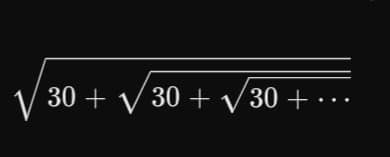
Consider the infinite nested radicals expression:
Let n represent this infinite nested radicals. so the equation becomes:

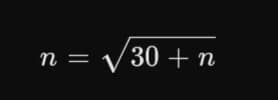
Square both sides to eliminate the square root:

So, Rearrange the equation to form a standard quadratic equation:
n2– n – 30 = 0
We solve this quadratic equation using the quadratic formula:
Since ( sqrt{121} = 11 ),
So,the equation becomes:
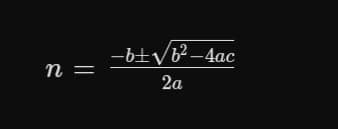
Now,Substituting the values ( a = 1 ), ( b = -1 ), and ( c = -30 ) into the formula
As a result,we get:
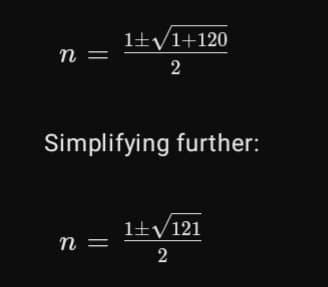
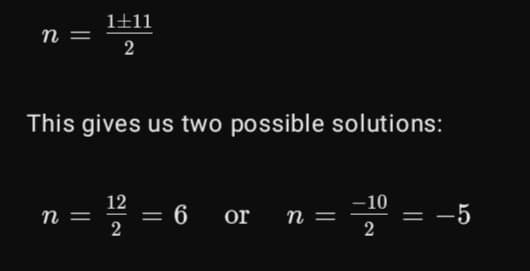
Method 2 :
Also,we can solve the quadratic equation n2 – n – 30 = 0 by factorization.
Step 1: Write down the equation
n2 – n – 30 = 0
Step 2: Identify coefficients
The equation is of the form ( n2 + bn + c = 0 ), where:( a = 1 ) (coefficient of ( n2 ))( b = -1 ) (coefficient of ( n ))( c = -30 ) (constant term)
Step 3: Now, Find two numbers that multiply to ( ac ) and add to ( b )
We need to find two numbers that multiply to ( a x c = 1 x -30 = -30 ) as well as add up to (b = -1 ).
The two numbers that satisfy these conditions are ( -6 ) and ( 5 ), because:( -6 x 5 = -30 )( -6 + 5 = -1 )
Step 4: Hence rewrite the middle term using these two numbers
We can now rewrite the quadratic equation by splitting the middle term ( -n ) into ( -6n + 5n ):
n2 – 6n + 5n – 30 = 0
Step 5: Hence Factor by groupingGroup the terms into pairs:
(n2 – 6n) + (5n – 30) = 0
Factor out the common factors in each group:
n(n – 6) + 5(n – 6) = 0
Step 6: Factor out the common binomial
Since both groups contain the common factor ( (n – 6) ), factor this out:
(n – 6)(n + 5) = 0
Step 7: Solve for ( n )
Set each factor equal to zero and solve for ( n ):
n – 6 = 0 ⟹ n = 6
n + 5 = 0 ⟹ n = -5
However, because ( n ) represents a length (and must be positive), we discard the negative solution.
Thus, the value of ( n ) is:
n = 6
Therefore, for the infinite nested radical expression with the base value 30,
Thus, the solution is 6

Leave a Reply